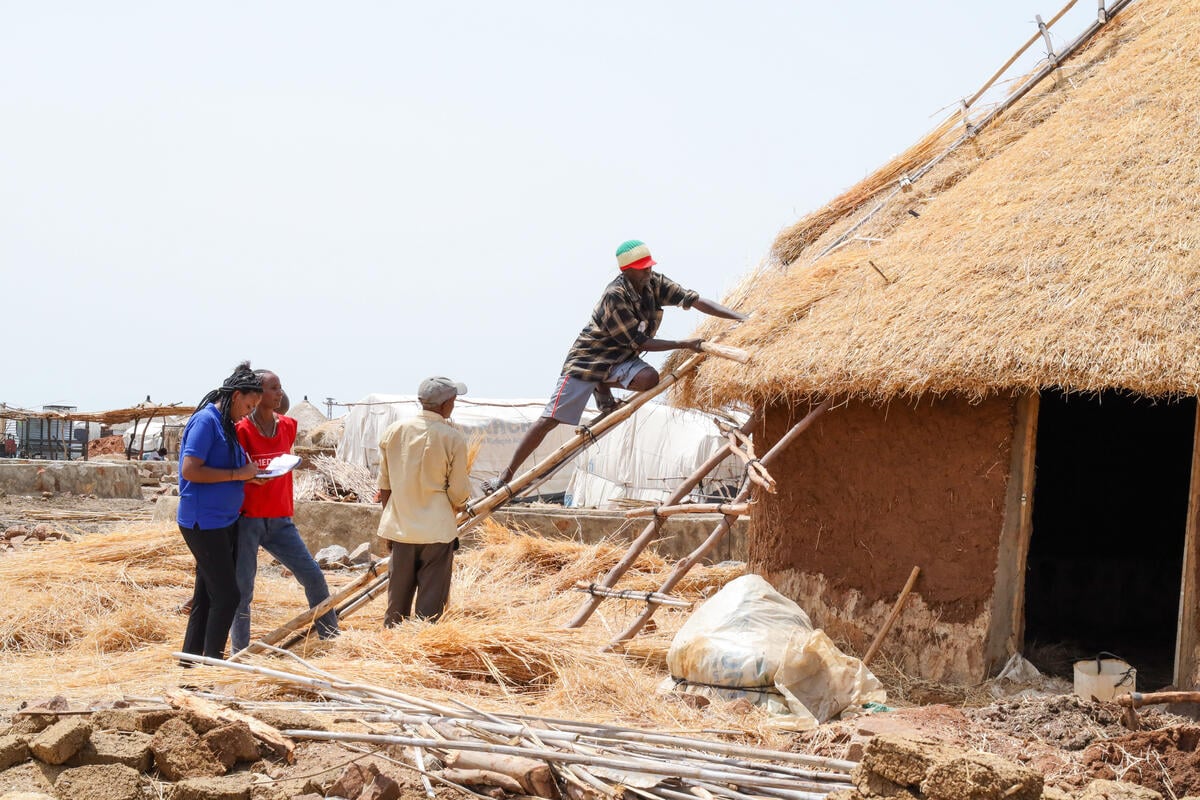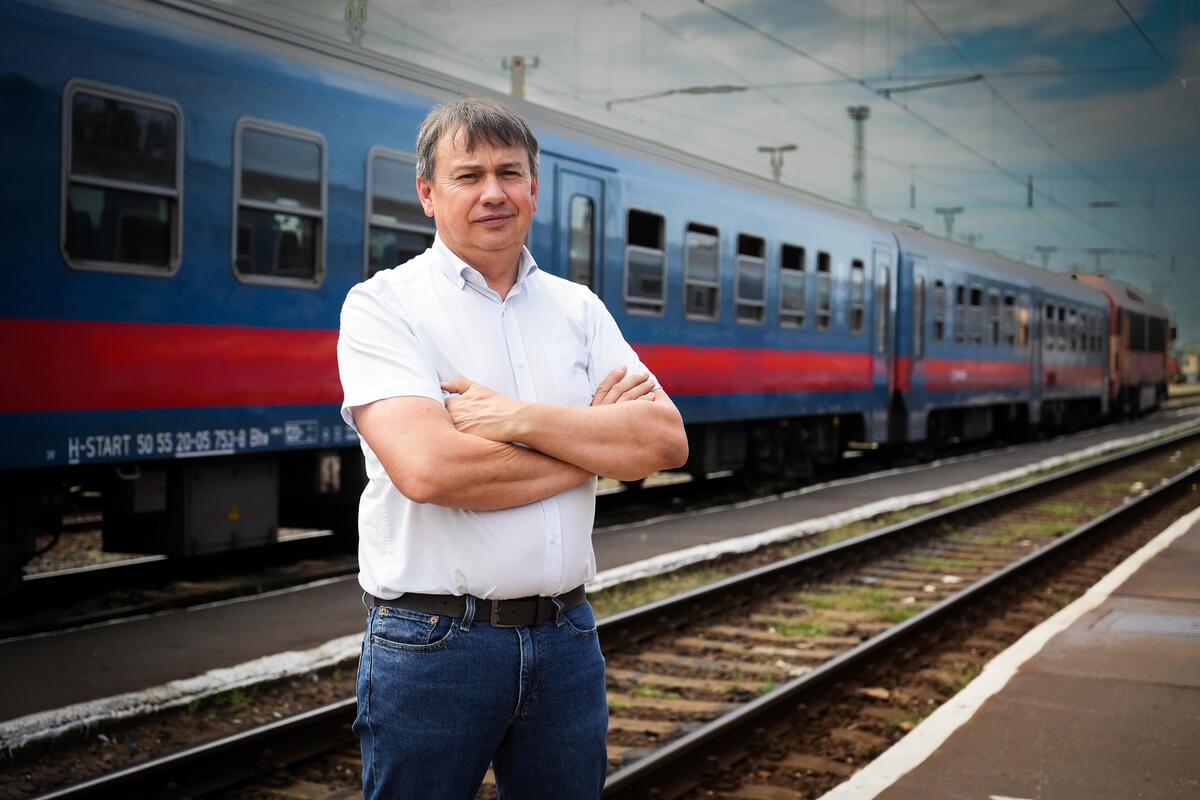UNHCR shelter programme helps displaced in southern Kyrgyzstan
UNHCR shelter programme helps displaced in southern Kyrgyzstan

JALALABAD, Kyrgyzstan, November 22 (UNHCR) - Five months ago, Gulmira* watched her life go up in flames after a group of armed men looted her belongings and torched the house she and her husband had built years before.
The elderly couple, who were looking after their three grandchildren at the time, were victims of the wave of violence that swept through Jalalabad and other towns in southern Kyrgyzstan last June, forcing some 300,000 people to flee to safer parts of the country and more than 100,000 to seek shelter in Uzbekistan.
Many have returned to their home areas, but thousands remain displaced. Gulmira and Murat,* for example, have been living since late June in a tent in the grounds of their ruined home. Their children and three grandchildren, aged three, seven and nine, left for the Russian Federation because they feared for their safety in southern Kyrgyzstan.
But earlier this month, the couple moved into a new shelter built for them by UNHCR. It was an emotional moment. "This is the most wonderful feeling to have a roof over my head," Gulmira told UNHCR visitors, adding: "I cannot believe we have a place to sleep in again."
Almost 2,000 private homes were destroyed and some 1,690 completely destroyed during the violence. But over the past month, almost 500 families (3,500 people) in Osh and Jalalabad provinces have moved back into homes built or rebuilt with UNHCR funding as part of an emergency transitional shelter programme approved by the government and donors. A further 1,200 families will move into proper accommodation by the end of the month, before the full winter arrives.
The reconstruction work entailed moving large amounts of rubble and debris, including asbestos, from damaged or destroyed buildings. UNHCR and its partners had to quickly source and purchase large amounts of construction material, including sand, cement, bricks and timber. For example, some 300,000 bricks were needed a day.
It has been a tremendous achievement and much appreciated by those left homeless. But sadness and bitterness remains about the wanton destruction of the summer. "We were born here, we worked our entire life in Jalalabad, we built a house, invested all our savings and everything went in one day," Gulmira said. "We lost everything."
Showing the UNHCR visitors around her damaged house, the bad memories came flooding back. Gulmira started weeping as she pointed out the basement where she was hiding with her grandchildren when the house was attacked. One man put a gun to her neck, but she was worried most for the children during the short ordeal.
Meanwhile, aside from the practical result of getting people into proper accommodation before the winter, the shelter programme has also helped to restore a sense of community and give people hope for the future. Several families told of their plans to improve and expand their homes in the spring.

Encouraged by the local authorities, UNHCR and its partners, including ACTED, the Danish Refugee Council and Save the Children, communities have helped each other in the construction of shelters. The worst affected neighbourhoods of Osh and Jalalabad now look revitalized and are once again busy with activity.
"The timely restoration of housing is an important first step in rebuilding destroyed communities," noted Hans Schodder, UNHCR's representative in Kyrgyzstan. But he added that much more needs to be done to secure peace and stability.
"Confidence between communities and authorities was destroyed and will need considerable effort and time to grow again. Restoring the rule of law and respect for human rights must be the top priority of the new parliament, government and all authorities as well as civil society, opinion leaders and the media. UNHCR will continue to support this process," he stressed.
Gulmira, meanwhile, looks forward to the day when her whole family are reunited in Jalalabad. "How could they come when we had no place to live, just a small tent?," she asked. "This house gives me hope to see my grandchildren again," she added, with a warm smile on her face.
* Names changed for protection reasons
By Natalia Prokopchuk in Jalalabad, Kyrgyzstan









